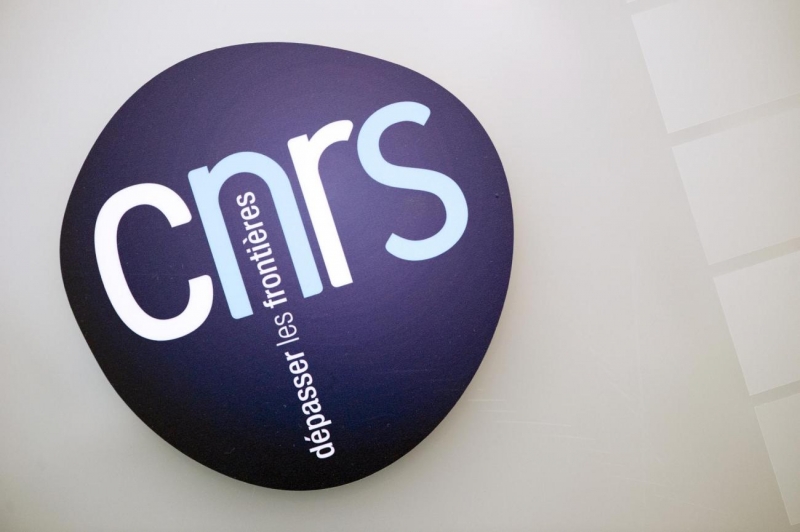 < /p> AFP/Archives – LIONEL BONAVENTURE
< /p> AFP/Archives – LIONEL BONAVENTURE
A report recommends Monday reviewing the place of the National Center for Scientific Research (CNRS) in its relationship with universities, while strengthening its financial viability to better retain students. best researchers.
The report, commissioned by Hcéres (High Council for the Evaluation of Research and Higher Education), is the result of an evaluation committee of sixteen experts from ten nationalities.
It describes the public establishment created in 1939 as a “major, world-class research institution”. And it readily recognizes its role as a “leader in Europe” through its reputation, its size (with the equivalent of 31,000 employees), and its scope via ten scientific institutes covering all fields of science (mathematics, physics, social sciences, etc.)
However, the committee chaired by Martin Vetterli, president of the École Polytechnique Fédérale de Lausanne, recommends reviewing its governance.
It judges that its board of directors “does not really play a strategic role” , with many decisions “obviously determined in advance” and taken without transparency.
The committee recommends the installation of an “independent external advisory council” for scientific orientations, including a “high proportion of foreign members.”
At a press conference, Mr Vetterli justified the direct tone of the report by the need to “not beat around the bush”. With the desire to “help the CNRS to be better”.
The president of the CNRS Antoine Petit also said he was satisfied, in comments to AFP, with “the general tone of the report”, which should “be able to help the CNRS evolve”.
This is the first time, since its creation, that the organization has submitted to an international evaluation.
“Difficult to understand”
The CNRS is made up of a thousand research units, almost always shared — within mixed research units (UMR) — with universities, grandes écoles and other establishments.
This UMR mechanism, a “unique situation” in the world, “does not promote agility”, even though “research-intensive” universities have appeared, notes the report. Who pleads for leaving the latter “leadership on specific subjects”.
The report also defends greater autonomy for UMRs, by strengthening the role of directors in the research of their unit, particularly in the allocation of resources. The current process of allocating these resources, via the CNRS institutes, is “very difficult to understand”, according to the report.
Several difficulties weigh on the assumed objective of “attracting, supporting and retain the best talents”, and in particular young researchers.
The report points to a “continued deterioration in remuneration levels”. And more generally a “lack of financial viability” of the CNRS budget.
This budget, of 3.7 billion in 2021, is three-quarters supplemented by subsidies.
Judged insufficient by the report, it should be a “major subject” of CNRS discussions with its supervisory body, the Ministry of Research and Higher Education. The latter should in particular provide greater visibility to the CNRS on the expected evolution of its grant.
“Bureaucratic burden”
The committee also looked at the subject of human resources, evoking “strategic subjects” for what constitutes the “primary wealth” of the CNRS.
A theme which, according to Antoine Petit, is “the major point” of the report, and which is not only based on the question of remuneration.
The report points out the absence of a “structured talent development and career support plan” , and even mandatory training on human resources skills.
In this area, he recommends the development of a culture of mentoring for young researchers. And mentions in passing the “challenge of treating poorly performing staff”.
Another challenge, that of encouraging more CNRS researchers working in UMRs to contribute to teaching in the establishments which host them .
The report also echoes a real “bureaucratic burden”, with administrative procedures of “increasing complexity and sometimes even absurdity”, which constitute so many obstacles to research activity.
Administrative tasks can absorb up to 50% of young researchers' time, according to several testimonies collected by the evaluation committee. Which, according to Martin Vetterli, requires a “real “commando operation” to tackle an “urgent” problem.
Did you like the article? It mobilized our editorial staff, which lives only of your donations.
Information has a cost, especially since competition from subsidized editorial offices requires additional rigor and professionalism.
With your support, France- Soir will continue to offer its articles free of charge because we believe that everyone should have access to free and independent information to form their own opinion.
You are the sine qua non condition for our existence, support us so that France-Soir remains the French media that allows the most legitimate expression.

